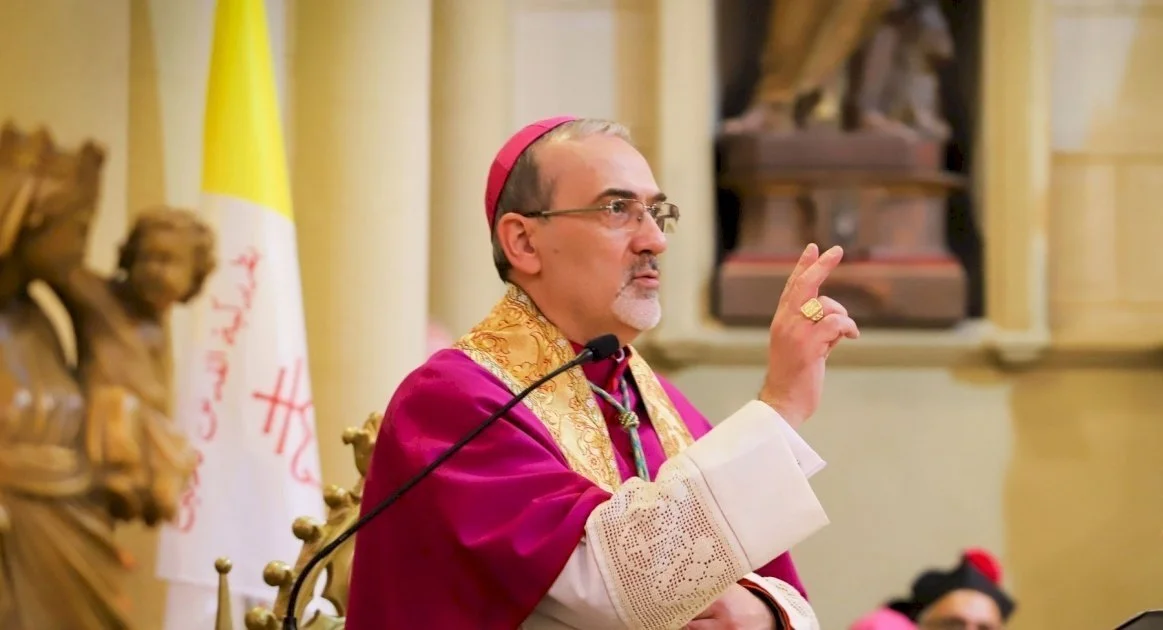Meditation Of His Beatitude Patriarch Cardinal Pierbattista Pizzaballa: Second Sunday Of Easter
Below you can find the Meditation of His Beatitude Patriarch Cardinal Pierbattista Pizzaballa, Latin Patriarchate of Jerusalem, for the Second Sunday Of Easter, on Sunday 7 April 2024.
Jn. 20:19-31
The Liturgy of the Word for the Second Sunday of Easter (Jn. 20:19-31) takes us back to the Upper Room, where the Risen One appears among his own.
Jesus joins his disciples at the place where they have taken refuge and locked themselves away. It is the very evening of the day when Mary of Magdala, with Peter and the beloved disciple, made the discovery of the empty tomb. Also, Mary, having remained at the tomb, met the Lord, and rushed to inform the disciples (Jn. 20:1-18).
I would like to emphasize a few aspects of this encounter, between the Risen One and His own in the Upper Room.
The first is peace.
When the Risen One meets his own, he first gives them peace: "Peace be with you!" (Jn 20:19,21). Eight days later, he will say the same thing (Jn 20:26), when he returns to meet Thomas, who was not present at the first meeting.
Jesus' is not simply a greeting, but rather a wish. In fact, immediately after giving them peace, he shows the wounds of his passion (Jn 20:20). And by this Jesus wants to tell us that peace is the first fruit of Easter, of redemption, the first gift of the Risen One to his Church.
We could say that Jesus can give peace because he died for everyone. He did not die just for someone, excluding the others from his gift of salvation. Jesus died for all, and this means that there are no more divisions or distinctions, no more enemies. To all He brought the Father's love, a love that reconciles us to Him.
This is peace, not a political peace, or a psychological peace, or a social peace: it is a "theological" peace, the peace that comes from knowing that we are no longer enemies, either of the Father or of each other, from knowing that we are all equally and freely saved.
The second gift of the Risen One to his Church is joy: "The disciples rejoiced when they saw the Lord" (Jn 20:20).
Joy, too, just like peace, is not an unstable and fickle human condition linked to more or less favorable events. The disciple's joy is the very joy of the Lord, it is the joy of his having passed from death to life: the Lord gives us this joy. It is like the feast that explodes in the merciful father's house when the prodigal son returns home (Lk 15): Jesus opened the door to this possible return, so the feast becomes a gift always accessible to Man.
These gifts must simply be welcomed, for them to become the source of a new life, a resurrected life, in us. For the Lord did not rise for himself, just as he did not live and die for himself. He is risen for us, so that our life too can be a resurrected life.
And the figure of Thomas can help us understand how this happens in the life of a disciple.
Like all the other disciples, Thomas needed to know the Lord again. The knowledge of Him that he had before the Passion, that of a good teacher who made important signs and showed likeness and mercy to the little ones, was not enough.
Now Thomas needs to know Him again, to know what the Lord has "become" through his resurrection. That is, the God of the impossible, who has accomplished something radically new, who has opened up a way that was absolutely unthinkable to Mankind.
We read in the Exodus account that Moses performed signs to persuade Pharaoh to let the people leave. Then the Egyptian soothsayers and magicians were able to replicate the same sign…
This Meditation was originally published on the website of the Latin Patriarchate of Jerusalem. Please click here to read the full text.


